The ecologists in Bulgaria are seemingly suffering for the sickly ecosystem of the Rila Lakes but have you ever seen a human chain of ecologists in front of the SUV’s that, with the silent blessing of the mayor of Sapareva Banya, will never stop moving?
A queue for the cable car to the Rila Lakes.
How many people can queue in summer for a cable car that would take them to the mountain? As many as the people who can wait on a cold day, fully equipped, leaning on their skis for hours, so that they can get to the slopes.
All attempts of the green eco-activists in Bulgaria to prove that cable cars are harming the environment have been scientifically and practically disproved by specialists from all around the world. People and their feet do not destroy the land. Even if the heaviest mountaineer weighs 120 kg, the lightest horse or deer weighs 350 kg. While walking, people do not uproot plants from the earth, but herbivores clip the plants they eat and frequently uproot them. Humans pick the easiest routes, but the four-legged mammals do not care they go and constantly kick rocks that accumulate in depressions or fall in water basins.
And while the wild animals are not that many and nature is taking good care of them, humans breed domestic animals and let them roam as far as they can reach to feed.
Why are the people queuing for the cable car not a problem?
Because a harmful cable car does not exist. It passes high above the ground, plants and habitats. The ridiculous notion that the people may throw rubbish from the cabins begs the question, “If they are to throw rubbish from above, what would stop them do the same on the ground?”
The ecologists in Bulgaria are seemingly suffering for the sickly ecosystem of the Rila Lakes but have you ever seen a human chain of ecologists in front of the SUV’s that, with the silent blessing of the mayor of Sapareva Banya, will never stop moving?
One of the owners of the SUV service, Kiril Zdravkov, has accumulated fines amounting to BGN 300000, but it is evident that he would not care even if the amount grows to BGN 400000. Now the question is not “WHO is Kiril Zdravkov?” We must ask WHOSE is Kiril Zdravkov, because no one can touch him regardless of his significant debt to the state. Someone must collect the due amount and use it for the appropriate construction of well-structured paths to the lakes. Or use the money to build special checkpoints on all existing roads that are considered municipal.
The main problem lies within the competition between the municipality and nature. The management of Rila Park is attempting to keep the whole region, but apparently the agreements between the mayor’s office, the court that systemically reduces the fines of SUV-operators from BGN 5000 to BGN 500 and the strangely silent and inert Greens who are supposed to cherish this mountain territory are different.
This begs the question why the green activists not once in the history of their protest blocked Eagle’s Bridge with a request for the SUVs in Rila to be stopped forever? Why the cars vrooming though the forest and under the cable-car are not a problem, but the actual cable car that passes above the environment is a problem? What is the “green” eco-agreement with Kiril Zdravkov who has accumulated unpaid fines for BGN 300000 and his colleagues?
It is probably the same as in Bansko, where the ecologists are okay with the 4000 cars (according to the counting system) going to the mountain every day in summer, but the construction of a second cable-car and the upgrade of the existing one with change in the distance between the supporting columns is a problem.
To accuse the people climbing up to the Rila Lakes are causing their swamping would be the same as to accuse the visitors that they have not brushed their teeth and the lakes are being “damaged” by their bad breath.
Swimming in the basins is forbidden, and except for a national dance or a misguided TV host, the most that people do is to wet their palms. Everyone is on a vast terrain under the sky, not in a small closed cave. Breathing, human steps and the use of sticks does not cause erosion. The horses however are a huge ecological problem. The reason is that, because of their nature, they always move one behind the other and create deep furrows. Their hooves roll rocks and when it rains or the snow melts, these rocks end up in the lakes and gradually fill them. The lakes become shallower with the years and start getting swampy.
Therefore, if we are to protect the ecosystem, the first thing to do is remove all domestic herbivores from the region.
The topic about the harmful people arriving on the bad cable-car is discussed when queues of hundreds of people start to form.
How can the access to the lakes be controlled?
In the nature parks around the world where daily quotas for visitors are fixed, this is done to create comfort for the people passing through and to generate income. The biggest problem with the attractive spots in nature is the number of tourists who wish to experience them. And at places where there are no roads, cable-carts and amenities, when it comes to natural monuments, you can see people on crutches and with sticks supported by their family and walking for hours to reach the desired goal.
What is the practice around the world?
In the USA there are federal nature parks and many more private nature parks. It is not the land that is private, but their management. And so, anyone entering the park territory, after payment of the entrance fee which is different depending on the type of vehicle and the number of people in it, must follow a series of instructions. At the places where broad panoramic asphalt alleys are built, the people can pass from one parking to the other in their cars and enjoy the sights.
In the parks for walking there are instructions where a person can go and no one is allowed even a centimetre further than the marking. When it comes to mountain tourism, visitors pay for their tickets and before entering the park they are checked for compliance with the instructions and adequate gear. At some places all single-use plastic bottles are taken, at others the sunscreens and repellents are taken. Some parks take the visitors’ food away if it is not packaged in special boxes that do not emit smell to attract the bears. The mechanisms of the gas bottles and the rechargeable batteries are described to be checked at exit.
In order to enforce the rules everywhere, a large part of the profits is allocated to the mountain rangers and video surveillance. There is no nature park in America, regardless of the jurisdiction, where people can put up tents wherever they like. Such an attempt would lead to arrest, a fine and sometimes even a prison sentence.
Payment however is not a sufficient measure against the huge interest in particular sites, so a daily quota for visitors is set.
There are quotas in place in some European parks. About ten years ago the daily quota at the famous Plitvice Lakes in Croatia was set at 12000 people and distributed among the hours of the day. It was estimated that if more people enter, the feeling for the beauty of the place and the nice experience may be lost.
Is a quota needed for the Rila Lakes? In Bulgaria such a measure would be pointless. The problem with the many people is not in their number, but in the loss of the feeling of nature, of the purity of the experience. If the daily number of allowed visitors is limited, the Rila traffickers will start taking tourists through the eye of a needle for the sake of screwing the system. There is unity only in the need of people to be wherever and whenever they want without care for the others. If for some objective reason ecologists warn that the lakes should not be visited by people with dogs (and this is expressly forbidden in many national parks around the world) the management of the park will face about 30 microphones and journalists with the straightforward question, “Are the dogs and their paws a problem in the mountain.” On the other side the dog owners will start crying, “Where am I supposed to take my dog? Should I abandon him?!”
Any ecological reason would lose its weight if the cute snout of the dog is shown on camera. Using the same logic of “the right to decide where and how to be” Pirin Is terrorized by cars. Certain people who call themselves “ecologists” can give a million reasons why the cable-car is evil above the trees, while none of them would block with their chests the roads in the mountain. There has never been and there will never be an ecological protest on the road in Pirin, although the smell of gasoline, and the noise of the engines have already destroyed the tiny animals that used to live along the road in the forests, but they have chased away the big creatures as well.
Where and how are people a problem for the nature sites?
Only at places where they are free to do as they please in a way they find convenient. The criminal negligence of the Ministry of Tourism and the ecologists have led to years of delay of the regulation legalizing not “wild camping” but the rules of camping anywhere on the territory of the country with precise and clear rules saying under what conditions and accompanied by which park representative and for what payment the lovers of sunsets and sunrises on mountain peaks and near lakes can do this.
Nature conservation means provision of:
- a maximum number of lifts in areas with a regular, significant influx of climbers;
- marking of paths from which the tourists are not allowed to stray;
- closing of the roads in the mountain and provision of access only to specialized vehicles for paid transport;
- when a mountain asphalt road is connecting settlements, a fee should be paid for its use by people who do not live in the region and the fee’s collection should be automatic;
- no parking lots in the mountain means lack of grounds for vehicle owners to park there;
- compulsory guided tours following specific routes when passing through susceptible ecosystems;
- calculation of maximum daily quotas for the most popular areas in the name of the comfort of the people visiting the region;
- compulsory use of qualified mountain guides for spending the night in nature.
No matter how hard you look, you will not find a Bulgarian conservationist – otherwise an active participant in campaigns and blocking the construction of safe roads and tunnels – who insists that the use of mountains, rivers and beaches should follow a designated order and carry a just fee.
The incurable socialism of the pseudo-ecologists proclaims a wide range of free services and arbitrary law, as long as there are no cable-cars.
Source:Glasove.com

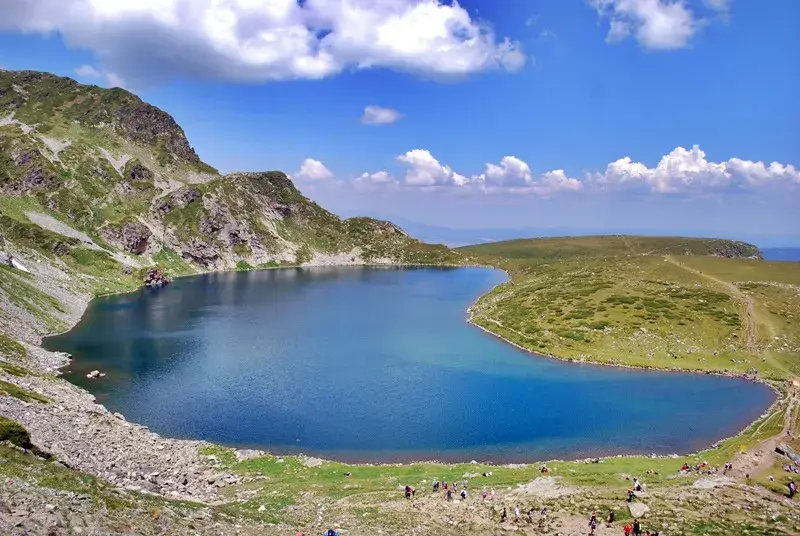


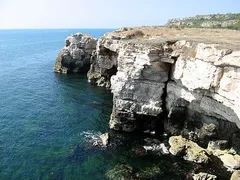
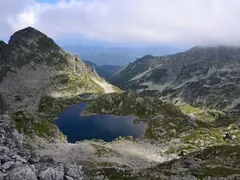
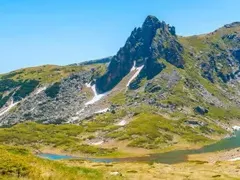
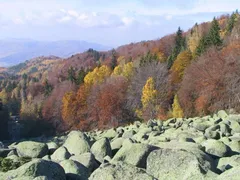

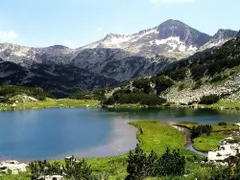
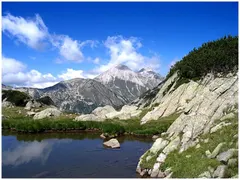










1 коментар
fu
22 Авг 2021oh aren't the hoards of tourists harming the nature? than why have the Rila lakes gone from serene crystal clear lakes to their current, swampy and ugly condition? fu with ur paid articles.